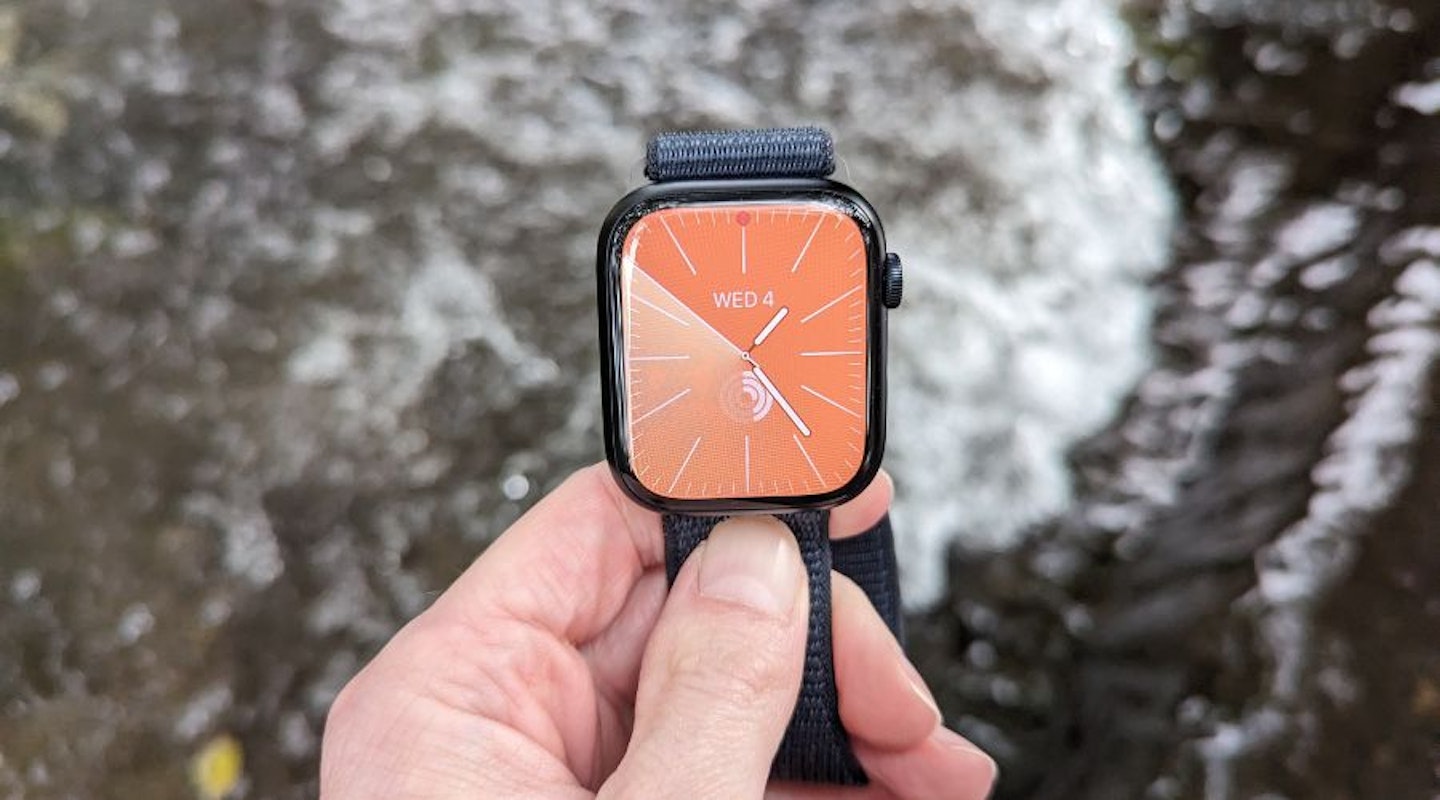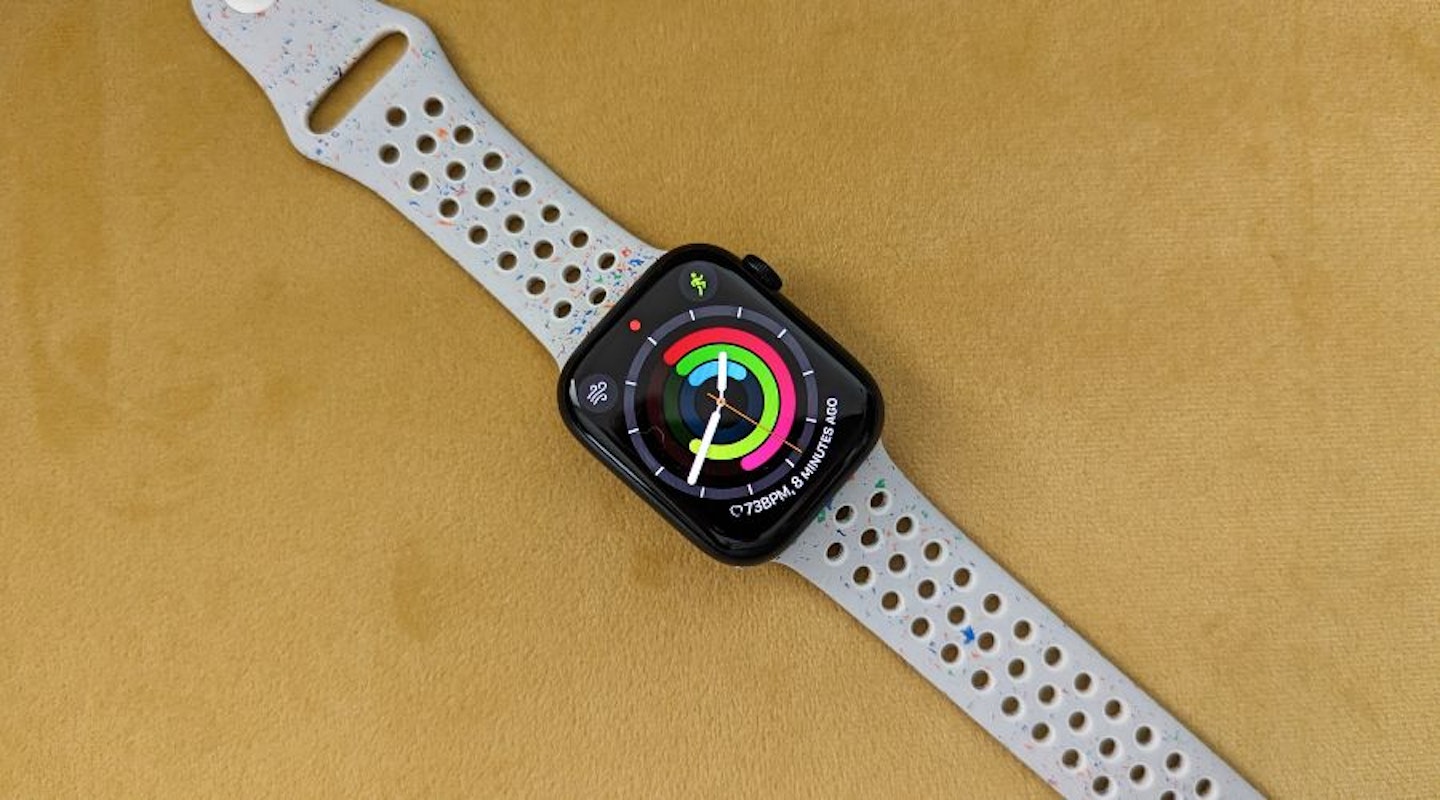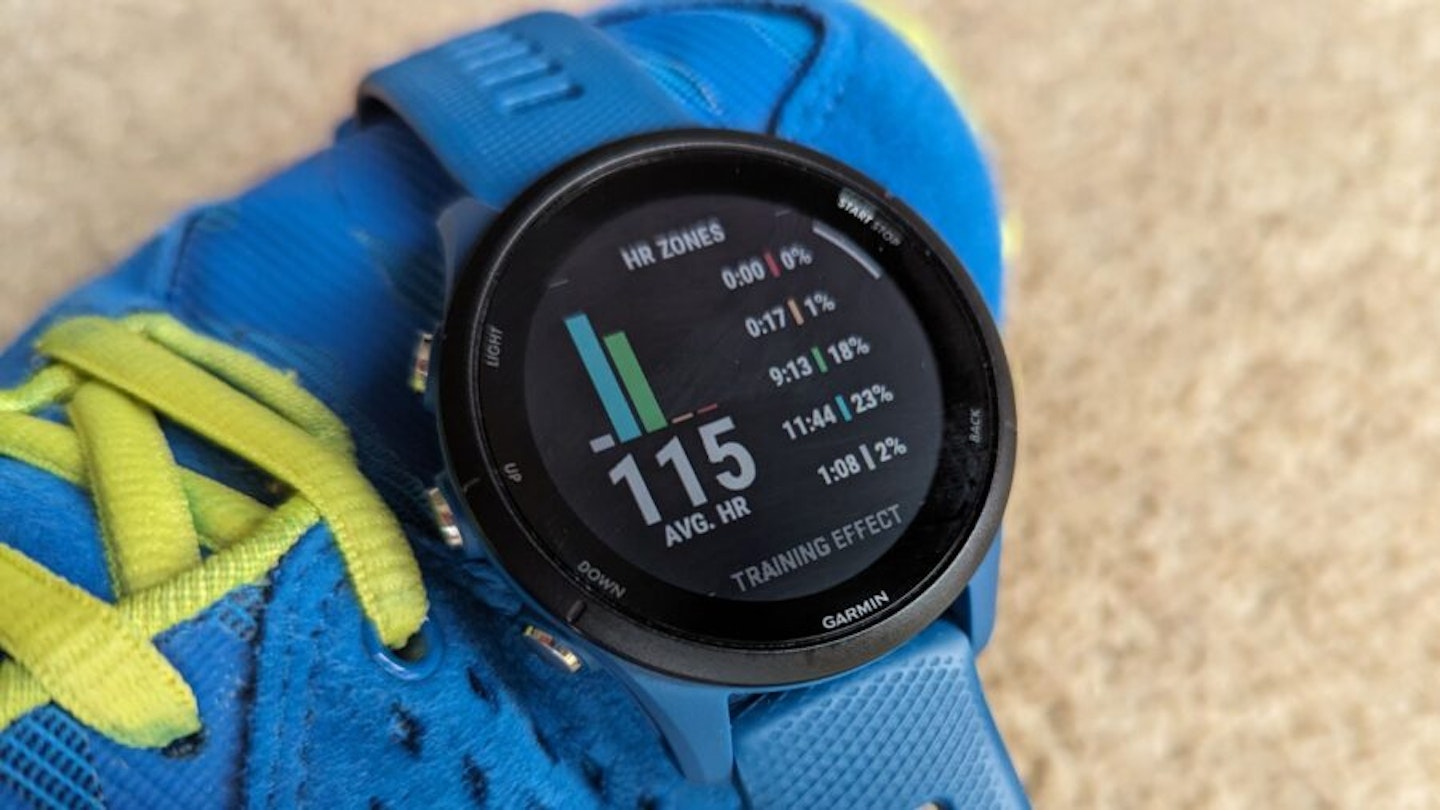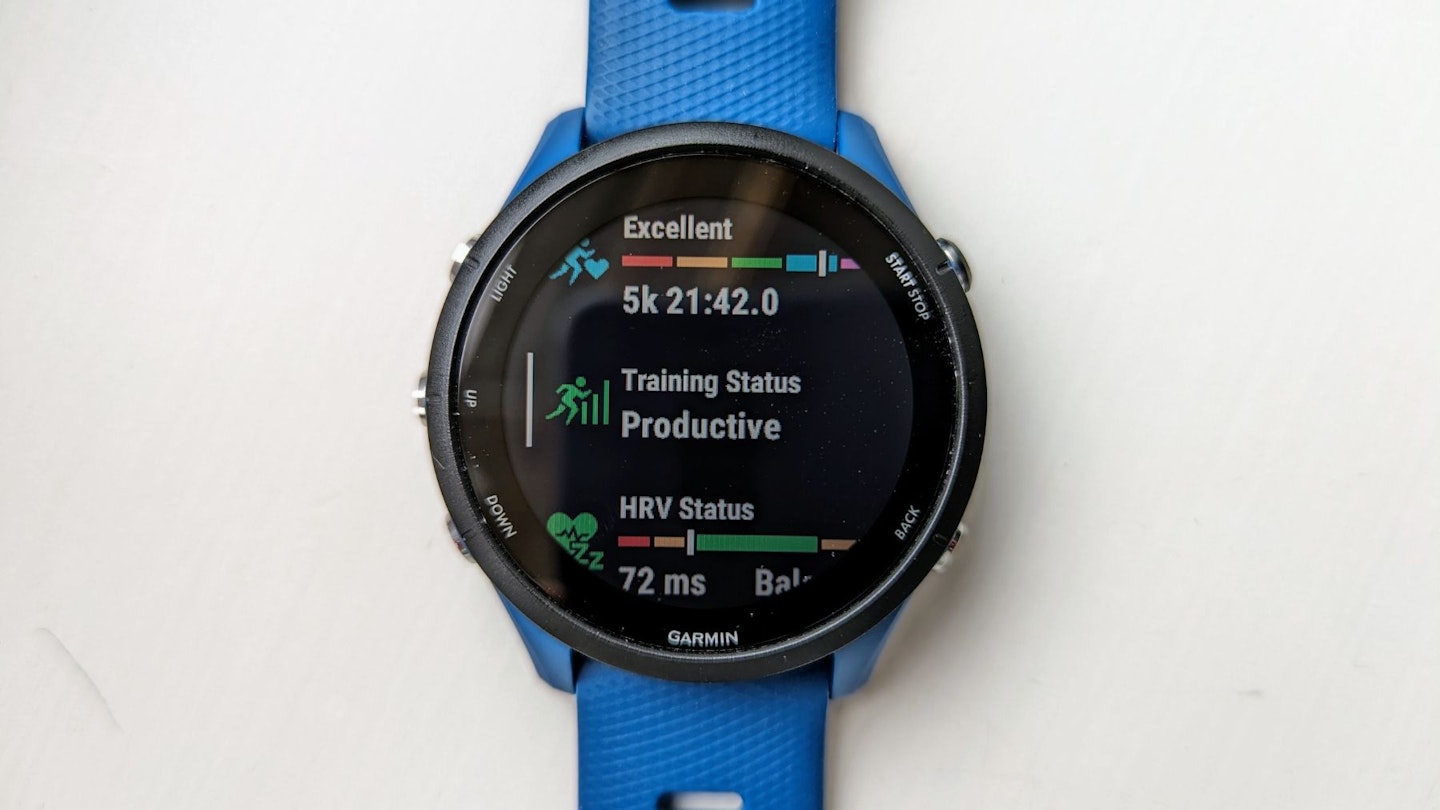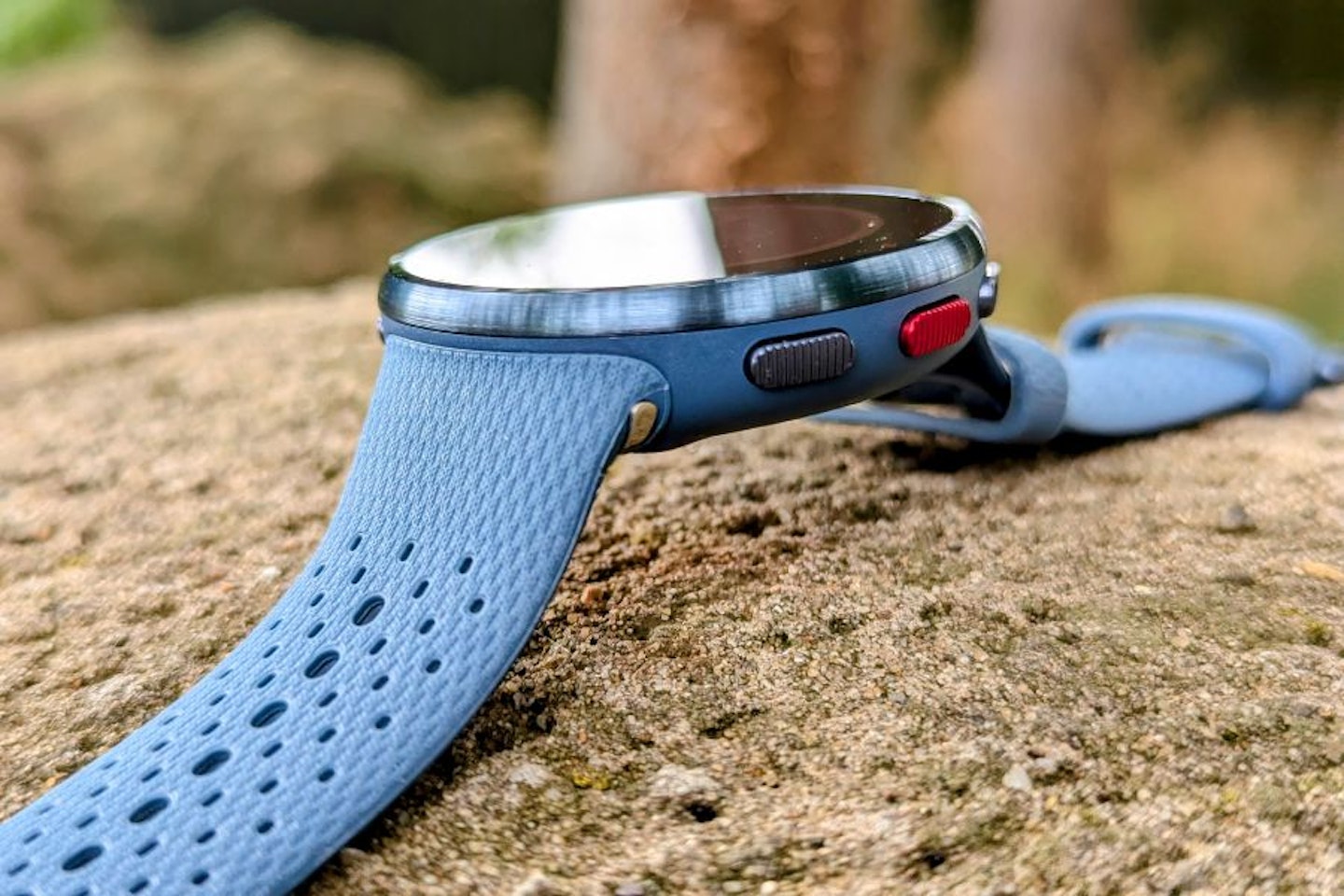Whether it’s in the pool or in open water, swimming can be a fantastic way to stay fit and healthy. And if you’re someone who enjoys keeping track of your swimming performance, then the best fitness trackers for swimming can be a big help. With a wide range of metrics such as heart rate, speed, laps, and SWOLF, there’s plenty of data that can be gleaned from your latest swim session.
Of course, not everyone wants that level of detail. That’s why we’ve picked out a variety of the best fitness trackers, designed to suit a range of needs. Whether you’re a dedicated triathlete, or just like a gentle pool swim as an aid to recovery, there’s something for you.
The best fitness trackers for swimming
Are smartwatches and fitness trackers waterproof?
In general, most of the best smartwatches and best fitness trackers will have some degree of water resistance. But they aren’t all created equal. Some are designed to be splashproof, which is fine if you get caught in the rain. Others are built to take in the swimming pool.
A select few – including some Apple Watches - are designed to withstand watersports and diving, where higher water pressure would break less durable devices. It’s therefore important that you choose a device that’s right for the type of swimming you intend to do. Let’s dive in and look at the best fitness trackers for swimming.
The best fitness trackers for swimming
All prices are correct at the time of writing. Prices, stock and deals are subject to change without notice.
Best overall
 Garmin
GarminWe’re big fans of the best Garmin watches, and as one of the best watches out there for triathletes, the Forerunner 965 has everything that most swimmers will need. It can track both open water and pool swimming, and unlike some devices, it can keep track of your heart rate even while you’re in the water. For pool swims, it’s smart enough to identify different stroke types while you swim.
It also monitors lengths, intervals, stroke count, SWOLF score, and CSS (critical swim speed). While not everyone needs all these metrics, if you want the most detail possible, this is a comprehensive list. But it does much more than just tracking your swimming.
Alongside swimming, this watch offers built-in GPS for incredibly accurate route tracking, there are dedicated triathlon and biathlon modes, alongside around 30 other sports tracking settings. You can download music and play it via the watch – perfect for listening to in the water via a pair of the best waterproof headphones. Battery life of over three weeks makes this an absolute powerhouse of a watch, with some of the best health and fitness tracking on any current device.
Price is the biggest drawback. The RRP of £599.99 means this won’t be for everyone. But if you want the best of everything for swim tracking and beyond, this is right up there.
Pros
- Accurate heart rate monitoring
- Plenty of swimming-focused metrics
- Garmin connect app is excellent
Cons
- Limited smartwatch features
- Pricey compared to some alternatives
| Display | 1.4-inch AMOLED, 454 x 454 pixels |
| Battery Life | Up to 23 days |
| GPS | GPS, GLONASS, GALILEO |
| Water Resistance | 5 ATM |
| Compatibility | iOS and Android |
| Dimensions | 47.1 x 47.1 x 13.2 mm |
| Weight | 53 grams |
Best budget
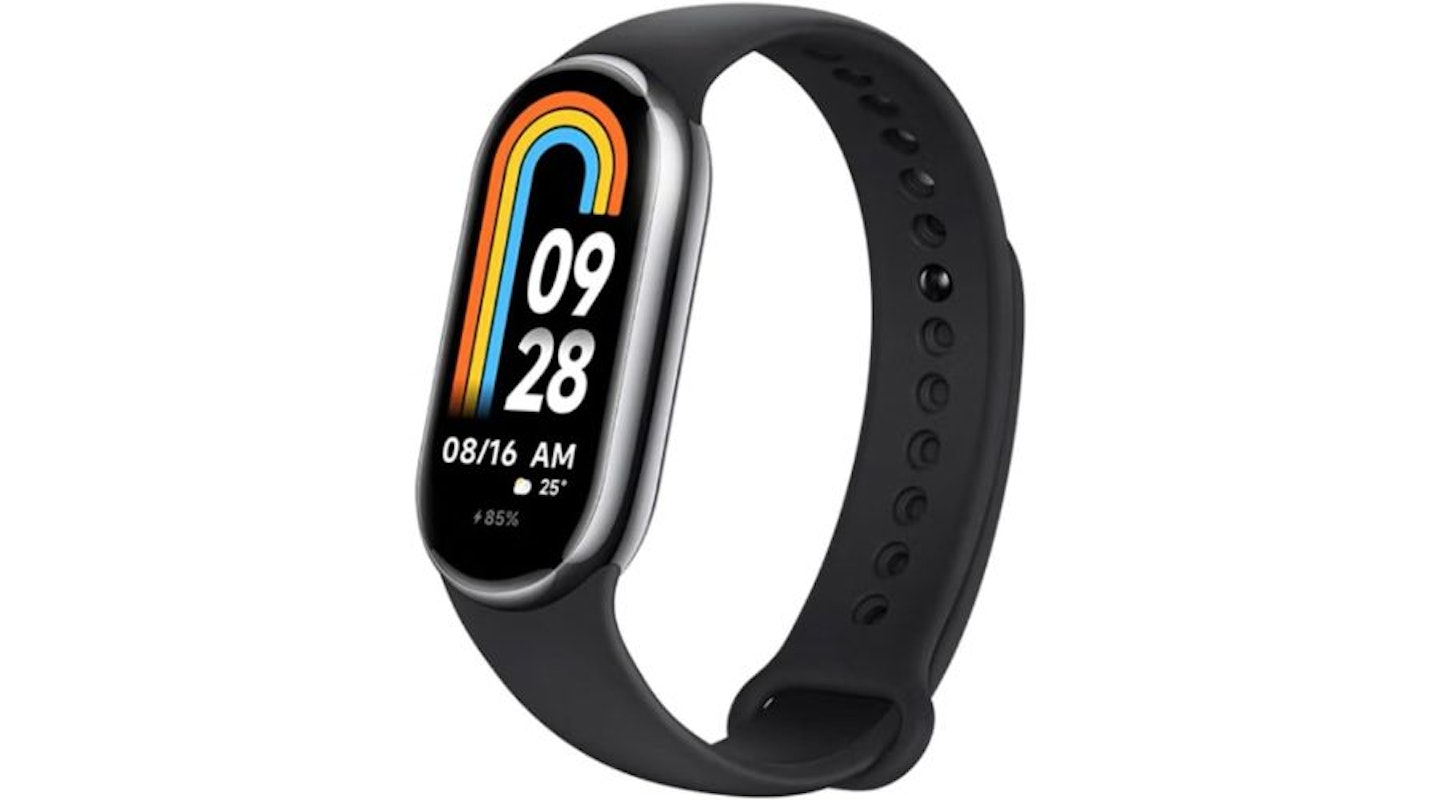 Xiaomi
XiaomiIf you want to track your swimming with an affordable fitness tracker, the Xiaomi Mi Smart Band 8 is our top pick. With an RRP of £34.99 - and sometimes on sale for under £25 - this is an exceptionally wallet-friendly device that still offers lots of features. There’s a reason it’s our favourite fitness tracker under £50.
The 5ATM water resistance rating means it’s great for swimming in the pool. It can also be used for other shallow water activities, such as snorkelling. The Smart Band 8 can record your lengths, strokes, average stroke rate, distance swum, and estimate how many calories you’ve burnt in the process. It can even recognise what stroke you were using during your swim.
The impressive 1.62-inch AMOLED display is bright and easy to read, and while not being a true smartwatch, it does have some useful smart features, including weather forecasts, music controls, and a calendar.
The app isn’t as polished as some alternative brands, and there are some question marks around its activity tracking in general. But for under £50, it’s hard to complain too much.
Pros
- Battery life is extremely good
- Excellent value for money
Cons
- No built-in GPS
- Question marks over accuracy
| Display | 1.62-inch AMOLED, 192 x 490 pixels |
| Battery Life | Up to 16 days |
| GPS | Connected-GPS only |
| Water Resistance | 5 ATM |
| Compatibility | iOS and Android |
| Dimensions | 48 x 22.5 x 10.99 mm |
| Weight | 27 grams |
Best premium
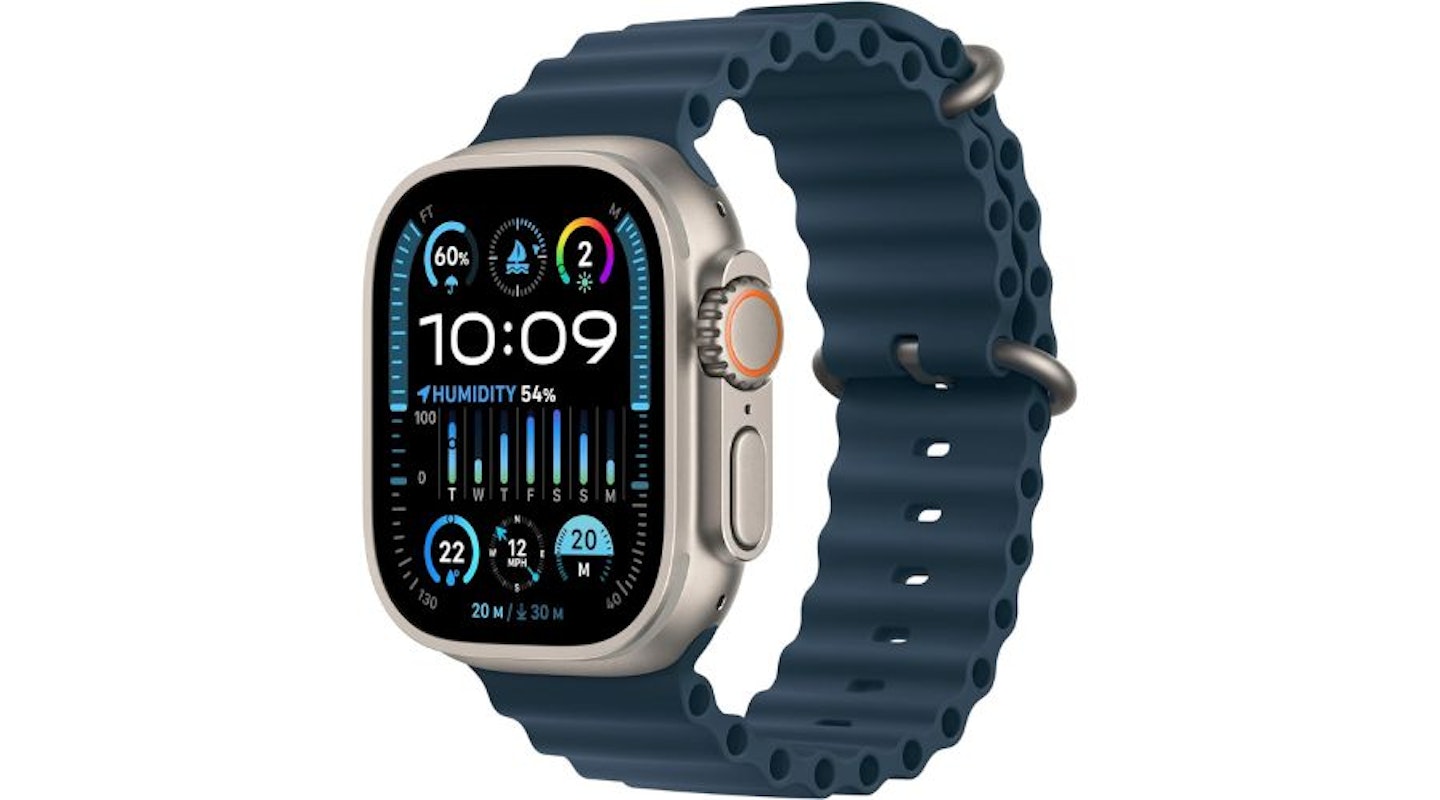 Apple
AppleA contender for our best overall pick, the Apple Watch Ultra 2 missed out for two reasons. Firstly, the RRP from £799 makes this the most expensive device on our list. And secondly, Apple Watches don’t work with Android, which means for a lot of people, this simply isn’t a suitable choice. Which is a shame because it’s an otherwise superb piece of hardware.
Sporting an aerospace-grade titanium case, this is a watch built to handle almost any swimming you care to do. As well as handling pool swimming with ease, this watch is water resistant up to 100 metres, making it suitable for recreational diving to depths of 40 metres, as well as withstanding high-speed water sports. Pool swimming tracks your sets and your rest, the kind of strokes you used, and the total distance you swam. It will also calculate the pace you swam each set at.
Battery life is much better than other Apple Watches, offering up to 36 hours (about 1 and a half days) of “normal” use – more than enough to track a swim. There’s also highly accurate built-in GPS, and a comprehensive suite of other health and fitness tracking tools. Unlike some of the other devices on our list, it’s also a complete smartwatch. For iPhone users, it’s a great choice.
Pros
- Superb water resistance
- Beautiful display
- Lots of other health and fitness tracking
Cons
- Not compatible with Android phones
- Battery life is weak compared to many devices
| Display | 1.91-inch OLED Retina display, 502 x 410 pixels |
| Battery Life | Up to 36 hours normal use, 72 hours in low power mode |
| GPS | GPS, GLONASS, Galileo, QZSS and BeiDou |
| Water Resistance | 100 metres under ISO standard 22810:2010 |
| Compatibility | iOS only |
| Dimensions | 49 x 41 x 14 mm |
| Weight | 61 grams |
Our pick as the best fitness tracker also happens to be the best Fitbit currently available, and hits a sweet spot between price, performance and features that make this suitable for most people. The Charge 6 is Fitbit’s most advanced fitness tracker, with upgraded sensors for more accurate heart rate tracking than any other Fitbit. There’s also built-in GPS, and even music controls for YouTube music.
In terms of swimming, the Charge 6 can track swim lengths, duration, distance and pace. This isn’t as comprehensive as some devices, so it won’t be suitable if you want to get into the real details of your swim. But for most people, these metrics will probably be more than enough. It’s affordable too – the RRP is £139.99, but we’ve seen it occasionally on offer for £109.99. That makes this one of the most affordable fitness trackers on this list, without compromising on overall performance.
Digital Writer Jack Barrell tried the Fitbit Charge 6 out for himself. Here's how he got on with it: "I was beyond pleased with the Charge 6 Fitbit as a result of it ticking so many essential fitness tracker boxes. It's an effective fitness companion thanks to how dedicated it is to your personal goals and progress. What also goes a long way is just how engaging and intuitive the Charge 6 is. Encouraging notifcations, graphics, and buzzes give you a congratulations or a gentle nudge to help you get the most out of your days.
It's not short of quality fitness tracker features either, all of which work brilliantly too. Having over 40 exercise modes (including swimming) at your disposal is a delight, heart rate monitoring is exact, and sleep tracking can really offer some interesting insight. At this price, there's little else out there offering such value."
Pros
- Highly durable
- Lots of health and fitness tracking features
- Can connect with compatible exercise equipment
- Music controls for YouTube music
Cons
- No skin temperature sensor
- Fitbit Premium costs extra
| Display | 1.4-inch AMOLED |
| Battery Life | Up to seven days |
| GPS | GPS, GLONASS |
| Water Resistance | 5 ATM |
| Compatibility | iOS and Android |
| Dimensions | 36.73 x 23.09 x 11.20 mm |
| Weight | 37.64 grams |
5.
Coros Pace 3
Best Coros
 Coros
CorosThe Coros Pace 3 is an inexpensive multisport watch that offers plenty of value for money. Crucially, you aren’t being short-changed on swim metrics either, as this watch offers the same features as more premium devices from Coros.
Like several other fitness trackers on this list, the Pace 3 can track both open water and pool swimming. In the pool, the Pace 3 can track your heart rate while you swim, as well as detect 4 major stroke types. In open water, accurate GPS tracking is available while you swim freestyle – but it isn’t guaranteed for other strokes.
There are loads of metrics you can measure, including distance, calories, heart rate, pace, SWOLF, and temperature, among others. It’s a comprehensive feature set that will appeal to swimmers, triathletes, and pool swimmers who want as much data as possible.
There’s lots of support for other types of training too, making this an extremely versatile sports watch for health and fitness fans. And its RRP of £219 makes it a bargain.
Pros
- Underwater heart rate monitoring
- Lots of swimming metrics supported
- Open water GPS tracking
Cons
- GPS tracking isn’t guaranteed with all strokes
- Limited smart features
- Plastic build feels cheap
| Display | 1.2-inch MIP LCD, 240 x 240 pixels |
| Battery Life | Up to 17 days |
| GPS | GPS, GLONASS, Galileo, Beidou, QZSS |
| Water Resistance | 5 ATM |
| Compatibility | iOS and Android |
| Dimensions | 41.9 x 41.9 x 11.7 mm |
| Weight | 39 grams |
Best goggles
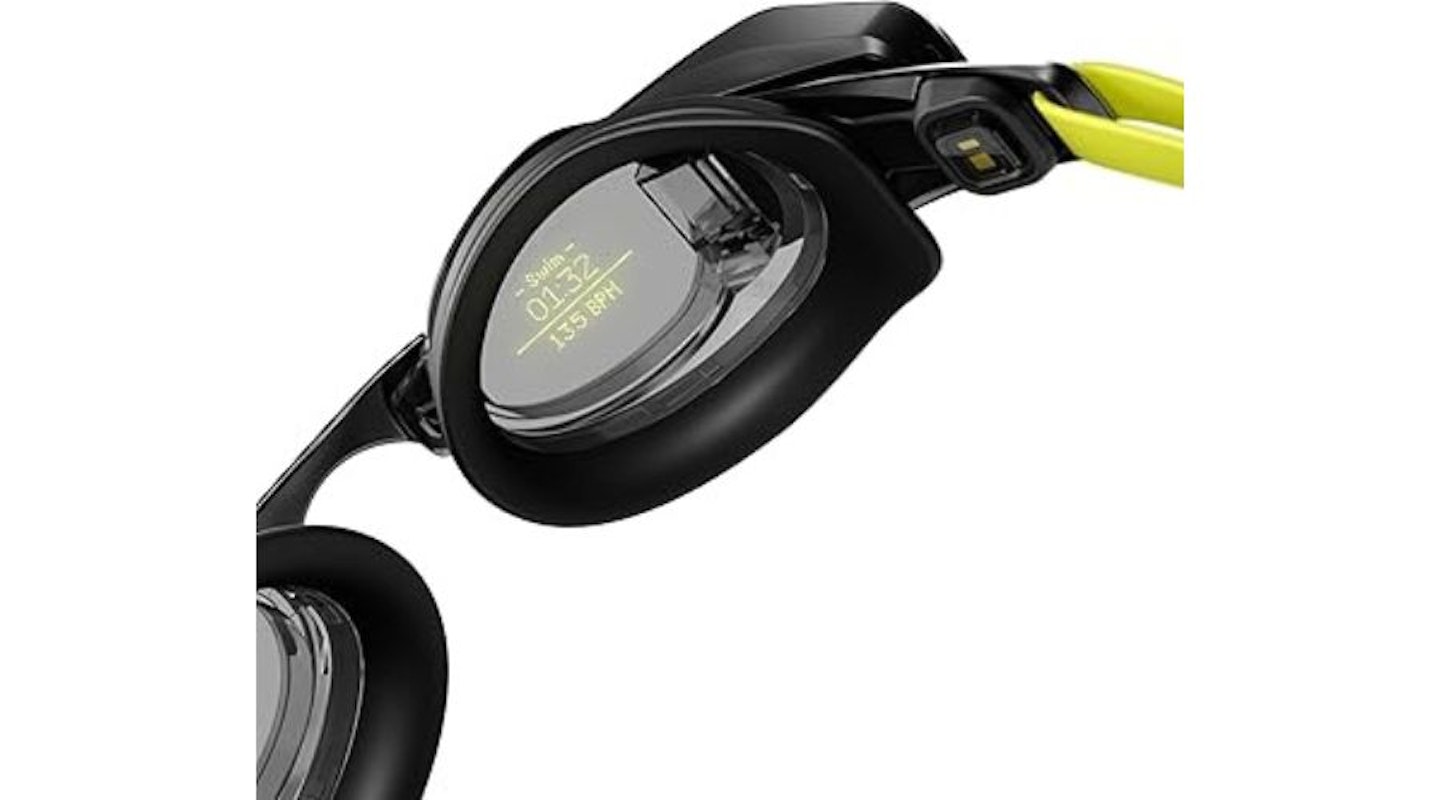 Form
FormIf you really want to feel like you’re living in the future, how about a pair of swimming goggles that track your swimming data, and beam it onto an augmented reality display that you can see as you swim? The Form Smart Swim 2 goggles are an extraordinary piece of kit, with a singular focus on tracking swimming metrics. Plus, there's the bonus of being able to offer you guidance and coaching on ways to improve your swimming technique. This does require a subscription, either £13 a month, or £84 for a year paid in full upfront. That’s on top of an RRP of £229.
Clearly, these aren’t designed for casual swimmers. These are for serious, competitive people, or for those who would really value some extra support in improving their technique. In return, these goggles can track nine metrics when you’re in the pool, or six when you’re in open water. These include heart rate monitoring, pace, stroke rate, distance, and calories burned. If you pay for the subscription, you get even more tools, such as visual coaching to improve your technique, a compass to help you swim straight, and access to over 1500 workouts and 45 training plans. The goggles can also automatically detect what stroke you are using.
14-hour battery life means you won’t need to charge these between every swim, while the data is compatible with Apple Health, as well as Strava, TrainingPeaks, TriDot and Final Surge. These are a much more specialised product than the other fitness trackers we’ve listed – but for some, they will be absolutely perfect.
Pros
- Integrated heart rate monitor
- Real time metrics displayed on screen
- Compatible with Garmin and Apple watches
Cons
- Additional monthly subscription to access all metrics
- Field of vision may be an issue for some
| Display | AR virtual display |
| Battery Life | 14 hours |
| GPS | No |
| Water Resistance | IPX8 |
| Compatibility | Android and iOS |
| Dimensions | Unspecified |
| Weight | 65 grams |
The Apple Watch Ultra 2 is the ultimate Apple Watch for swimming. But the Apple Watch Series 9 is still an extremely impressive device, which will be more than enough for most swimmers. The biggest difference is that the Apple Watch Series 9 is water resistant to 50 metres, rather than 100, and so it can’t withstand diving or water sports involving high velocity water. But it still offers support for both pool and open water swimming.
The Series 9 is good for measuring average pace, lengths and total distance, splits, SWOLF score, automatic stroke and kickboard detection. It’s a comprehensive set of swimming features that means this watch will be more than enough for all but the most serious of swimmers.
As with any Apple Watch, it’s only going to be useful if you already have an iPhone to sync the data with – it won’t work if you use an Android handset. With its RRP from £399, we wouldn’t call it cheap, either. But for an all-round brilliant smartwatch, the Apple Watch Series 9 is hard to beat, and perhaps still the best Apple Watch for most iPhone users.
Pros
- Beautiful bright screen
- Seamless integration with other Apple devices
- Lots of health and fitness tracking features
Cons
- Battery life is still less than a day
- Design has barely changed from previous versions
| Display | 1.61-inch OLED, 352 x 430 pixels / 1.9-inch OLED, 396 x 484 pixels |
| Battery Life | Up to 18 hours |
| GPS | GPS, GNSS, Galileo and BeiDou |
| Water Resistance | WR50 |
| Compatibility | iOS only |
| Dimensions | 41 x 35 x 10.7 / 45 x 38x 10.7 mm |
| Weight | 32.1 / 38.7 grams |
Best Android Watch
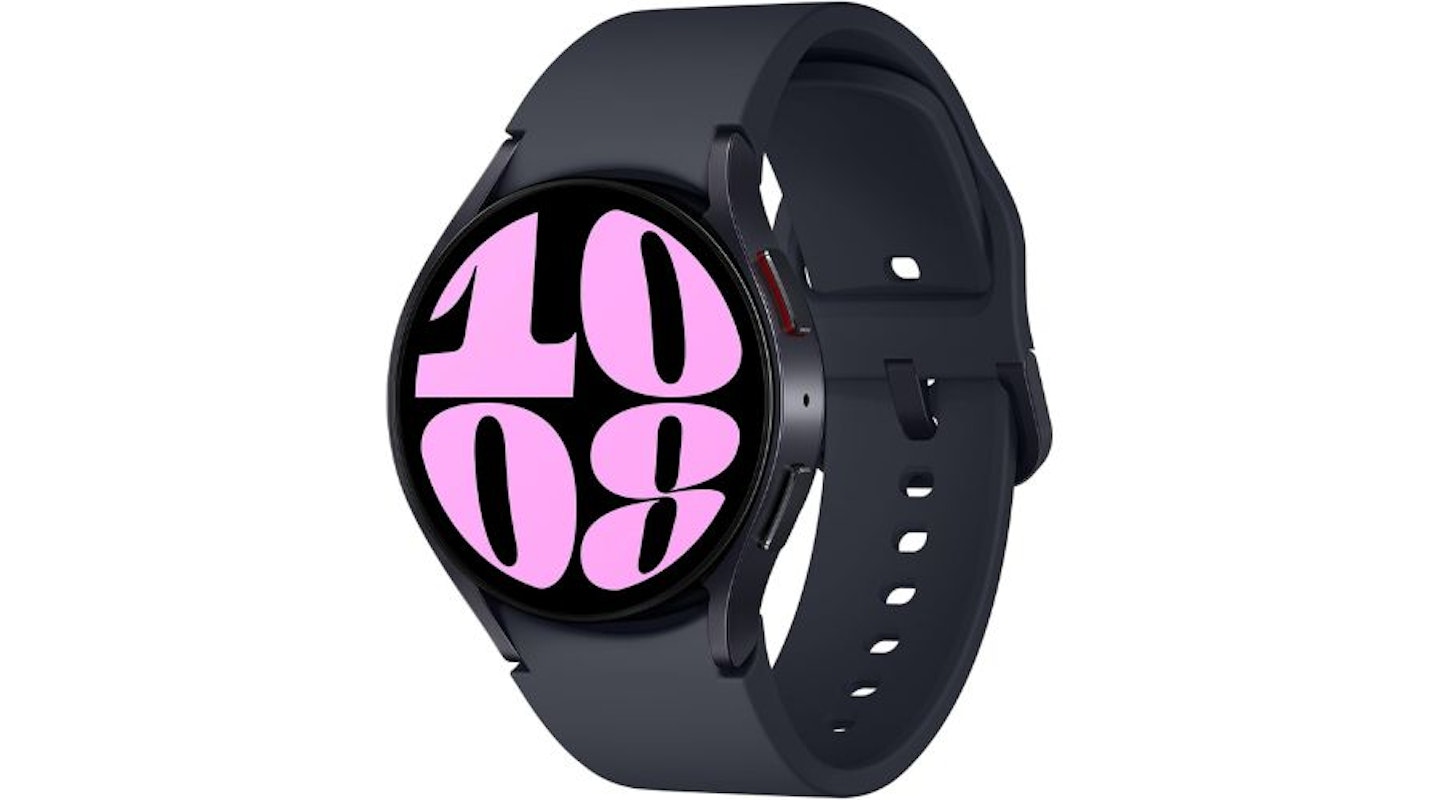 Samsung
SamsungSamsung’s Galaxy Watch 6 is still one of the best Android-focused smartwatches for most people – although it’s challenged strongly by the Google Pixel Watch 2. Its overall level of polish just gives it the edge, however.
For swimmers, the watch is water resistant up to 50 metres, making it fine to take for a swim in the local pool. The swimming mode on the watch automatically turns on water lock mode, which prevents unintentional screen inputs while you’re in the water. The Watch 6 tracks indoor and outdoor swimming, and can measure lengths, distance, split times, and automatically detect a variety of swimming strokes. For most recreational swimmers, this will be more than enough. Compatibility with third-party apps such as Swim.com help to elevate this device, as it allows users the option to select an alternative platform for tracking their performance, as well as giving access to training and workout plans.
The watch itself is a super all-round smartwatch. You’ll get the most from it if you also use a compatible Samsung smartphone, but any suitable Android device will give you access to a plethora of apps, and health and fitness tracking metrics. With an RRP from £289, it’s slightly cheaper than many rival devices, without compromising on performance.
Pros
- Beautiful display
- Improved sleep tracking and insights
- Lots of apps available, including Swim.com training platform
Cons
- Only compatible with Android devices
- Blood pressure monitoring is only compatible with Samsung smartphones
- Battery life is short
| Display | 1.3-inch super AMOLED, 432 x 432 pixels |
| Battery Life | Up to 40 hours |
| GPS | GPS, GLONASS, BeiDou, Galileo |
| Water Resistance | 5 ATM |
| Compatibility | Android only |
| Dimensions | 38.8 x 40.4 x 9.0 mm (small), 42.8 x 44.4 x 9.0 mm (large) |
| Weight | 28.7 grams (small), 33.3 grams (large) |
If you like the idea of the Garmin Forerunner 965, but aren’t so keen on the price tag, the Garmin Forerunner 255 may be an enticing alternative. It’s an older, mid-range model, which means it doesn’t have quite as comprehensive a feature set as the 965. But there’s still plenty of features that make it well worth your investment.
For swimmers, the Forerunner 255 supports pool and open water swimming. In the pool, the watch can automatically detect various strokes, as well as swim intervals and lengths. You’ll also benefit from distance, pace, stroke count, SWOLF score, and estimated calorie burn. The watch can also keep track of your heart rate during your swim. All in all, it’s a pretty comprehensive set of features.
It also does plenty out of the water – you can read our full Garmin Forerunner 255 review for the details – if you like to do a variety of sports and keep track of your metrics, this watch will do the job well. And because it’s an older model, it’s often available for less than £300 (sometimes under £220), making it great value.
Pros
- Excellent 14-day battery life
- Accurate GPS tracking
- Garmin Connect App is detailed and insightful
Cons
- MIP display isn’t particularly bright
- Limited smartwatch features
| Display | 1.3-inch transflective memory-in-pixel, 260 x 260 pixels |
| Battery Life | Up to 14 days |
| GPS | GPS, GLONASS, GALILEO |
| Water Resistance | <span style="color: rgb(34, 34, 34); font-family: __Montserrat_1ec507, __Montserrat_Fallback_1ec507; font-size: medium; white-space-collapse: collapse;">5 ATM</span> |
| Compatibility | iOS and Android |
| Dimensions | <span style="color: rgb(34, 34, 34); font-family: __Montserrat_1ec507, __Montserrat_Fallback_1ec507; font-size: medium; white-space-collapse: collapse; background-color: rgb(247, 247, 247);">45.6 x 45.6 x 12.9 mm</span> |
| Weight | 49 grams |
10.
Polar Pacer Pro
As an alternative to Garmin, the Polar Pacer Pro offers a good mid-range multisport watch that has a similarly comprehensive set of health and fitness tracking features to the Forerunner 255. Open water and pool swimming are both supported. During open water swims, the Pacer Pro can track pace, route and distance courtesy of the built-in GPS. If you’re swimming freestyle, it will also count your stroke rate.
For pool sessions, the watch can detect freestyle, butterfly, breaststroke and backstroke, and will measure pace, distance, strokes and SWOLF. Whether you're indoors or outside, it will also track your heart rate, to provide your average heart rate, and your heart rate zones during your swim. It can then estimate calorie burn, training load and training benefit from your swim.
It’s a solid multi-sports watch that has highly accurate GPS tracking, and in our Polar Pacer Pro review, we felt it provides plenty of tools to support your health and fitness goals. It’s often available for under £200, too, making it one of the most affordable options on our list.
Pros
- Detailed training and recovery metrics
- Accurate GPS tracking
- Light and comfortable
Cons
- Relatively short battery life
- Limited smartwatch features
| Display | 1.2-inch, memory-in-pixel, 240 x 240 pixels |
| Battery Life | Up to seven days |
| GPS | GPS, Glonass, Galileo, QZSS |
| Water Resistance | <span style="color: rgb(34, 34, 34); font-family: __Montserrat_1ec507, __Montserrat_Fallback_1ec507; font-size: medium; white-space-collapse: collapse; background-color: rgb(247, 247, 247);">WR50</span> |
| Compatibility | iOS and Android |
| Dimensions | 45 x 45 x 11.5 mm |
| Weight | <span style="color: rgb(34, 34, 34); font-family: __Montserrat_1ec507, __Montserrat_Fallback_1ec507; font-size: medium; white-space-collapse: collapse;">41 grams</span> |
Buyers guide: fitness trackers for swimming
Given the vast array of fitness trackers that can be used to track your swimming, choosing the right one for you can be a bit of a challenge. But there are a few things we think are important, that will help you narrow down your choices.
Budget
Start by working out how much you are willing to spend. Options range from devices that will cost less than £50 - like the Xiaomi Smart Band 8 – to devices that will cost several hundred – we're looking at you, Apple Watch Ultra 2. And there is plenty of choice in between. Work out what you’re willing to spend, and weigh that up against the must-have features you’re looking for.
Features
Obviously, if you’re looking at fitness trackers for swimming, you’re going to want a device that offers a range of swimming focused metrics, such as lengths, distance, pace, and strokes. For more serious swimmers, you may want to check your SWOLF score, or CSS. Then you may also want to consider whether it can automatically detect what stroke you are using. Does it have built-in GPS if you’re swimming in open water? Does that matter Work out which metrics are nice to have, and which ones are essential. Then, look for a device that meets the essential criteria, and see what else is on offer.
But you may also want to consider what else it offers beyond the water. Now, if you’re a dedicated swimmer, you may not care what it does beyond the pool – in which case something like the Form Smart Swim 2 goggles may be ideal. Alternatively, if you want something more multi-faceted, decide how you are going to use it, and again, which features are most important to you.
Accuracy
For some people, accuracy will be critical, while for others, if it’s in the right ballpark, that will suffice. This will be a personal choice, but in general, if you rely on the data to see how you’re doing, then you will probably want to look for as accurate a device as possible.
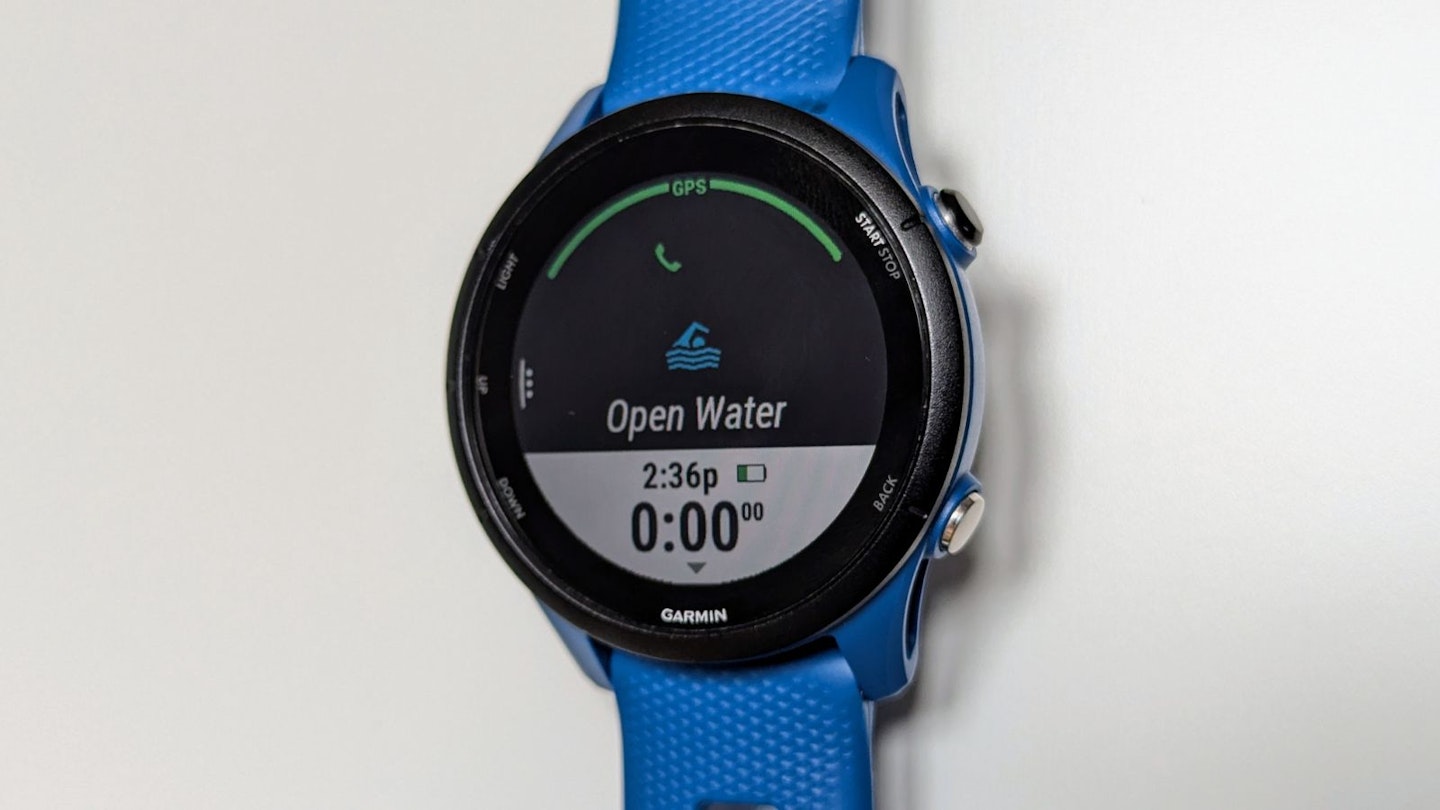
FAQ: fitness trackers for swimming
What are the key features in fitness trackers for swimming?
Whether you’re a daily dipper, or a more sporadic swimmer, you still want your fitness tracker to be up to the job. Here’s what to look for in a suitable fitness tracker:
Waterproof rating
Any device you plan to take swimming needs to be waterproof. The higher the waterproof rating, the better, as it will be built to withstand deeper water, for longer. Anything that’s described as “splashproof” or that doesn’t have a minimum of a 5ATM water resistance should probably be avoided. If you’re planning to use it in deep water, or for water sports, you’ll need even higher ratings.
Metrics
We’ve talked about metrics already, but there’s little value in wearing a fitness tracker for swimming if it can’t track your swimming. Most fitness trackers will have a dedicated swim mode, but key metrics to look for include pace, distance, number of lengths, and number of strokes. You can also look to see if they offer SWOLF scores, CSS, and any training drills, or auto-detection of different stroke types. Some will support open water swimming (in which case built-in GPS can be useful), while others will only track pool swimming.
Ease of use
Any good fitness tracker should have ease of use at the forefront of the design process. This is arguably even more important when you are using it for swimming, as it isn’t always convenient to stop in the middle of the water to fiddle with settings. Touchscreens, voice controls, and automatic detection tools can all make your life a lot easier – leaving you free to concentrate on getting your laps in.
What are the benefits of using a fitness tracker for swimming?
Swimming is a fantastic, low-impact form of exercise. So how can a fitness tracker help? First off, by being able to track your swims, you’ll be able to check your progress, which can be highly motivational. It’s a great feeling when you see that you’ve swum further, or faster, than ever before.
Some devices can also give you support through training plans and workouts, or by helping you improve your technique. Which can be a lot easier and cheaper than hiring a professional coach.
How to care for your fitness tracker after swimming
While fitness trackers are generally built to cope with getting wet, it’s still advisable to look after them, to make sure they last you as long as possible. If you’ve been in chlorinated or salt water, we recommend rinsing your fitness tracker with fresh, clean water to remove any salt or other chemicals, which can be corrosive. Once they’ve been rinsed, drying them gently with a soft towel or cloth helps to remove any excess moisture from them, preserving the waterproofing for as long as possible.
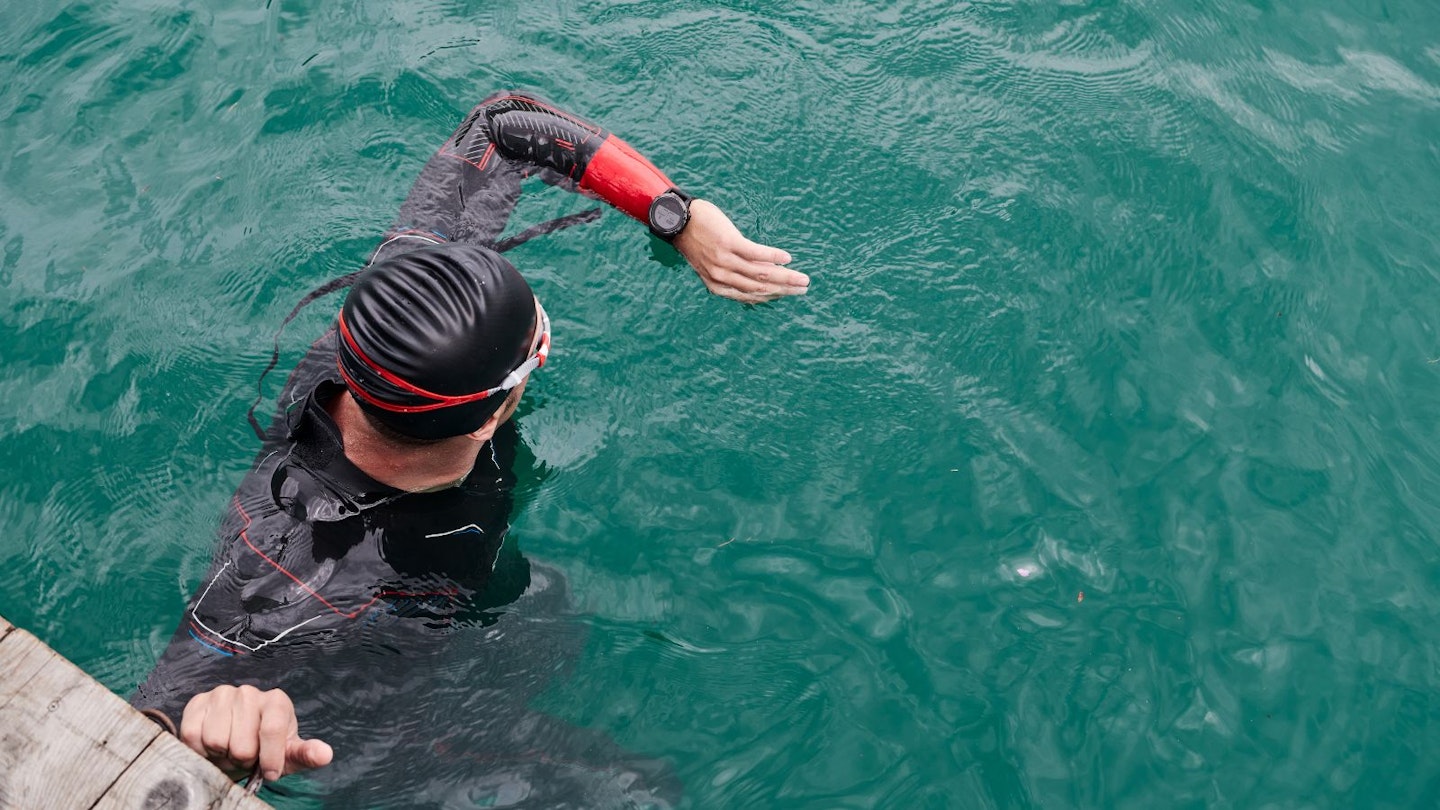
Jargon buster: fitness trackers for swimming
SWOLF score
SWOLF is short for swimming and golf. It’s what’s called an “indirect measure of efficiency”. It adds together the time it takes to swim a pool length with the number of strokes you needed, to provide a score. For example, if it took you 30 seconds and 15 strokes to complete a length, your SWOLF score would be 45. As a rule of thumb, the lower your SWOLF score, the more efficient you are.
Critical swim speed
Critical swim speed is a speed that you could theoretically maintain without being exhausted. CSS can be useful to help you dictate your training pace, as well as being an indicator of how your performance is improving over time.
Why should you trust us?
At What’s The Best, our mission is to provide accurate and reliable reviews, ensuring our readers receive honest and transparent information about the best technology products available. Anything less would undermine our commitment to being a trusted source of unbiased product information.
Our dedicated in-house writing team comprises experts with extensive experience and a genuine passion for technology. Collectively, we have spent decades testing and writing about tech, leveraging our expertise in all our articles, advice pieces and reviews.
We maintain complete editorial independence and do not accept payment for product reviews. Our writers have full control over their content, ensuring that products are selected based solely on the needs of our readers. While we may earn commissions or other compensation from links on our website, this never affects our product choices. These links enable us to continue offering valuable consumer advice, without compromising the integrity of our reviews.
Steven Shaw is a Senior Tech Writer and Reviewer for What’s the Best. Steven writes how-to guides, explainers, reviews and best-of listicles covering a wide range of topics. He has several years of experience writing about fitness tech, mobile phones, and gaming.
When Steven isn’t writing, he’s probably testing a new smartwatch or fitness tracker, putting it through its paces with a variety of strength training, HIIT, or yoga. He also loves putting on a podcast and going for a long walk.
Subscribe to the What’s The Best Newsletterto keep up to date with more of the latest reviews and recommendations from the What’s The Best team.

